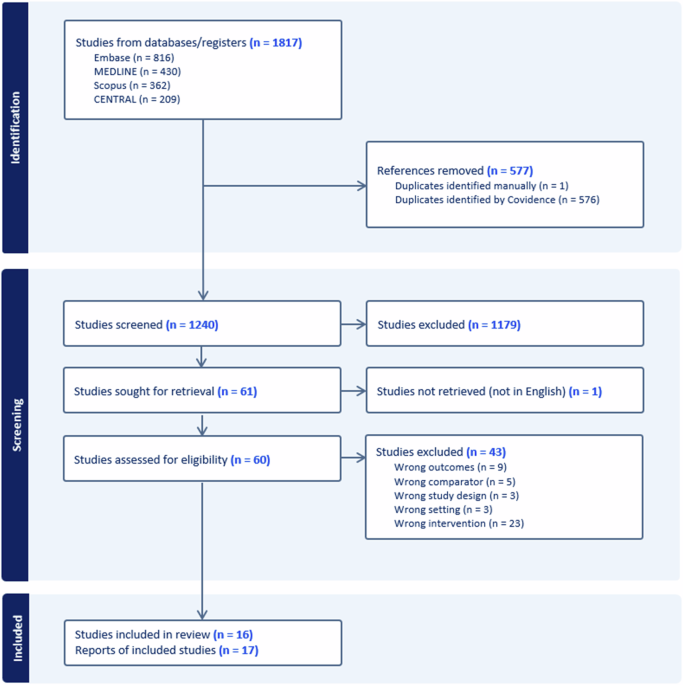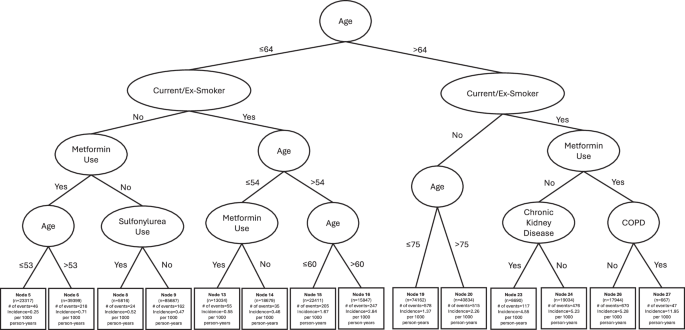Automated lifestyle interventions and weight loss: a systematic review of randomized controlled trials

Martin SS, Aday AW, Almarzooq ZI, Anderson CAM, Arora P, Avery CL, et al. 2024 Heart Disease and Stroke Statistics: a report of US and global data from the American Heart Association. Circulation 2024;149:e347–e913.
Google Scholar
American Diabetes Association Professional Practice Committee. Obesity and weight management for the prevention and treatment of type 2 diabetes: standards of care in diabetes-2024. Diabetes Care. 2024;47:S145–57.
Jensen MD, Ryan DH, Apovian CM, Ard JD, Comuzzie AG, Donato KA, et al. 2013 AHA/ACC/TOS guideline for the management of overweight and obesity in adults: a report of the American College of Cardiology/American Heart Association Task Force on Practice Guidelines and The Obesity Society. Circulation. 2014;129:S102–38.
Google Scholar
Ely EK, Gruss SM, Luman ET, Gregg EW, Ali MK, Nhim K, et al. A national effort to prevent type 2 diabetes: participant-level evaluation of CDC’s national diabetes prevention program. Diabetes Care. 2017;40:1331–41.
Google Scholar
Porter J, Boyd C, Skandari MR, Laiteerapong N. Revisiting the time needed to provide adult primary care. J Gen Intern Med. 2023;38:147–55.
Google Scholar
Marcolino MS, Oliveira JAQ, D’Agostino M, Ribeiro AL, Alkmim MBM, Novillo-Ortiz D. The impact of mHealth interventions: systematic review of systematic reviews. JMIR Mhealth Uhealth. 2018;6:e23.
Google Scholar
Curry D. MyFitnessPal Revenue and Usage Statistics (2024). Business of Apps. Available at: Accessed 22 April 2024.
Carris N, Bullers K, Eubanks T, Epperson C, McKee M, Sempek J, et al. The impact of automated lifestyle interventions on health outcomes: a systematic review of randomized controlled trials. PROSPERO 2023 CRD42023435700 Available from: Accessed 22 April 2024.
Page MJ, McKenzie JE, Bossuyt PM, Boutron I, Hoffmann TC, Mulrow CD, et al. The PRISMA 2020 statement: an updated guideline for reporting systematic reviews. BMJ (Clin Res ed). 2021;372:n71.
McGowan J, Sampson M, Salzwedel DM, Cogo E, Foerster V, Lefebvre C. PRESS peer review of electronic search strategies: 2015 guideline statement. J Clin Epidemiol. 2016;75:40–6.
Google Scholar
Glanville J, Foxlee R, Wisniewski S, Noel-Storr A, Edwards M, Dooley G. Translating the Cochrane EMBASE RCT filter from the Ovid interface to Embase.com: a case study. Health Info Libr J. 2019;36:264–77.
Google Scholar
Covidence. Systematic review software, Veritas Health Innovation, Melbourne, Australia. Available at www.covidence.org.
Higgins JP, Altman DG, Gøtzsche PC, Jüni P, Moher D, Oxman AD, et al. The Cochrane Collaboration’s tool for assessing risk of bias in randomised trials. BMJ (Clin Res ed). 2011;343:d5928.
Guyatt GH, Oxman AD, Vist GE, Kunz R, Falck-Ytter Y, Alonso-Coello P, et al. GRADE: an emerging consensus on rating quality of evidence and strength of recommendations. BMJ (Clin Res ed). 2008;336:924–6.
Balshem H, Helfand M, Schünemann HJ, Oxman AD, Kunz R, Brozek J, et al. GRADE guidelines: 3. Rating the quality of evidence. J Clin Epidemiol. 2011;64:401–6.
Google Scholar
Baer HJ, Rozenblum R, De La Cruz BA, Orav EJ, Wien M, Nolido NV, et al. Effect of an online weight management program integrated with population health management on weight change: a randomized clinical trial. JAMA. 2020;324:1737–46.
Google Scholar
Bootwong P, Intarut N. The effects of text messages for promoting physical activities in prediabetes: a randomized controlled trial. Telemed J E Health. 2022;28:896–903.
Google Scholar
Glasgow RE, Kurz D, King D, Dickman JM, Faber AJ, Halterman E, et al. Twelve-month outcomes of an Internet-based diabetes self-management support program. Patient Educ Couns. 2012;87:81–92.
Google Scholar
Gomez-Marcos MA, Patino-Alonso MC, Recio-Rodriguez JI, Agudo-Conde C, Romaguera-Bosch M, Magdalena-Gonzalez O, et al. Short- and long-term effectiveness of a smartphone application for improving measures of adiposity: a randomised clinical trial – EVIDENT II study. Eur J Cardiovasc Nurs. 2018;17:552–62.
Google Scholar
Greene J, Sacks R, Piniewski B, Kil D, Hahn JS. The impact of an online social network with wireless monitoring devices on physical activity and weight loss. J Prim Care Community Health. 2013;4:189–94.
Google Scholar
Hajna S, Sharp SJ, Cooper AJM, Williams KM, van Sluijs EMF, Brage S, et al. Effectiveness of minimal contact interventions: an RCT. Am J Prev Med. 2021;60:e111–e21.
Google Scholar
Hoerster KD, Hunter-Merrill R, Nguyen T, Rise P, Barón AE, McDowell J, et al. Effect of a remotely delivered self-directed behavioral intervention on body weight and physical health status among adults with obesity: the D-ELITE randomized clinical trial. JAMA. 2022;328:2230–41.
Google Scholar
King AC, Campero MI, Sheats JL, Castro Sweet CM, Hauser ME, Garcia D, et al. Effects of counseling by peer human advisors vs computers to increase walking in underserved populations: the COMPASS randomized clinical trial. JAMA Intern Med. 2020;180:1481–90.
Google Scholar
Laing BY, Mangione CM, Tseng CH, Leng M, Vaisberg E, Mahida M, et al. Effectiveness of a smartphone application for weight loss compared with usual care in overweight primary care patients: a randomized, controlled trial. Ann Intern Med. 2014;161:S5–12.
Google Scholar
Lugones-Sanchez C, Recio-Rodriguez JI, Agudo-Conde C, Repiso-Gento I, G Adalia E, Ramirez-Manent JI, et al. Long-term effectiveness of a smartphone app combined with a smart band on weight loss, physical activity, and caloric intake in a population with overweight and obesity (evident 3 study): randomized controlled trial. J Med Internet Res. 2022;24:e30416.
Google Scholar
Lugones-Sanchez C, Sanchez-Calavera MA, Repiso-Gento I, Adalia EG, Ramirez-Manent JI, Agudo-Conde C, et al. Effectiveness of an mHealth intervention combining a smartphone app and smart band on body composition in an overweight and obese population: randomized controlled trial (EVIDENT 3 Study). JMIR Mhealth Uhealth. 2020;8:e21771.
Google Scholar
Mensorio MS, Cebolla-Martí A, Rodilla E, Palomar G, Lisón JF, Botella C, et al. Analysis of the efficacy of an internet-based self-administered intervention (“Living Better”) to promote healthy habits in a population with obesity and hypertension: an exploratory randomized controlled trial. Int J Med Inf. 2019;124:13–23.
Shaw RJ, Bosworth HB, Silva SS, Lipkus IM, Davis LL, Sha RS, et al. Mobile health messages help sustain recent weight loss. Am J Med. 2013;126:1002–9.
Google Scholar
Silina V, Tessma MK, Senkane S, Krievina G, Bahs G. Text messaging (SMS) as a tool to facilitate weight loss and prevent metabolic deterioration in clinically healthy overweight and obese subjects: a randomised controlled trial. Scand J Prim Health Care. 2017;35:262–70.
Google Scholar
Tate DF, Kraschnewski JL, Martinez C, Diamond M, Veldheer S, Hwang KO, et al. A cluster-randomized controlled trial of automated internet weight-loss programs in primary care: role of automated provider feedback. Obesity. 2022;30:2363–75.
Google Scholar
Jahangiry L, Shojaeizadeh D, Abbasalizad Farhangi M, Yaseri M, Mohammad K, Najafi M, et al. Interactive web-based lifestyle intervention and metabolic syndrome: findings from the Red Ruby (a randomized controlled trial). Trials. 2015;16:418.
Google Scholar
Peimani M, Rambod C, Omidvar M, Larijani B, Ghodssi-Ghassemabadi R, Tootee A, et al. Effectiveness of short message service-based intervention (SMS) on self-care in type 2 diabetes: a feasibility study. Prim Care Diabetes. 2016;10:251–8.
Google Scholar
Oussedik E, Foy CG, Masicampo EJ, Kammrath LK, Anderson RE, Feldman SR. Accountability: a missing construct in models of adherence behavior and in clinical practice. Patient Prefer Adher. 2017;11:1285–94.
Hoffmann TC, Glasziou PP, Boutron I, Milne R, Perera R, Moher D, et al. Better reporting of interventions: template for intervention description and replication (TIDieR) checklist and guide. BMJ (Clin Res ed). 2014;348:g1687.
Cowart K, Updike W, Bullers K. Systematic review of randomized controlled trials evaluating glycemic efficacy and patient satisfaction of intermittent-scanned continuous glucose monitoring in patients with diabetes. Diabetes Technol Ther. 2020;22:337–45.
Google Scholar
Kelly WN, Ho MJ, Bullers K, Klocksieben F, Kumar A. Association of pharmacist counseling with adherence, 30-day readmission, and mortality: A systematic review and meta-analysis of randomized trials. J Am Pharmacists Assoc. 2021;61:340–50.e5.
Kelly WN, Ho MJ, Smith T, Bullers K, Kumar A. Association of pharmacist intervention counseling with medication adherence and quality of life: a systematic review and meta-analysis of randomized trials. J Am Pharm Assoc. 2023;63:1095–105.
Updike WH, Pane O, Franks R, Saber F, Abdeen F, Balazy DD, et al. Is it time to expand glucagon-like peptide-1 receptor agonist use for weight loss in patients without diabetes? Drugs. 2021;81:881–93.
Google Scholar
Carris NW, Taylor JR, Gums JG. Combining a GLP-1 receptor agonist and basal insulin: study evidence and practical considerations. Drugs. 2014;74:2141–52.
Google Scholar
Carris NW, Pardo J, Montero J, Shaeer KM. Minocycline as a substitute for doxycycline in targeted scenarios: a systematic review. Open Forum Infect Dis. 2015;2:ofv178.
Google Scholar
Patel RV, Shaeer KM, Patel P, Garmaza A, Wiangkham K, Franks RB, et al. EPA-registered repellents for mosquitoes transmitting emerging viral disease. Pharmacotherapy. 2016;36:1272–80.
Google Scholar
American Diabetes Association Professional Practice Committee. Diabetes technology: standards of care in diabetes-2024. Diabetes care. 2024;47:S126–44.
Anderson K. Popular fad diets: an evidence-based perspective. Prog Cardiovasc Dis. 2023;77:78–85.
Google Scholar
Internet/broadband fact sheet. Pew Research Center: Internet, Science & Technology 2021. Available from: Accessed 23 April 2024.
Mobile fact sheet. Pew Research Center: Internet, Science & Tech. 2021. Available from: Accessed 23 April 2024.
Rodriguez LA, Bradshaw PT, Shiboski SC, Fernandez A, Vittinghoff E, Herrington D, et al. Examining if the relationship between BMI and incident type 2 diabetes among middle-older aged adults varies by race/ethnicity: evidence from the Multi-Ethnic Study of Atherosclerosis (MESA). Diabet Med. 2021;38:e14377.
Google Scholar
link






